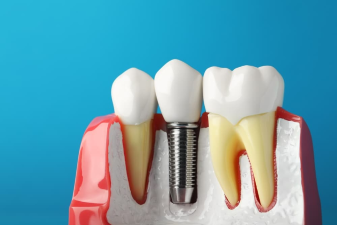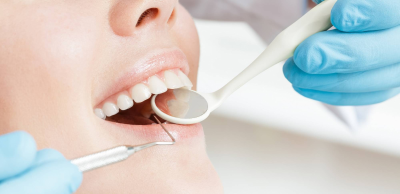As new parents, caring for your baby's health is a top priority, and that includes their dental health. Baby teeth serve significant roles during early development, not only in helping your child chew but also in guiding the growth of permanent teeth. Understanding how to care for your baby’s teeth from infancy through the teen years is crucial to establishing a foundation for a lifetime of good oral health.

Understanding Baby Teeth
Why Are Baby Teeth Important?
Baby teeth, also known as primary teeth, are the first set of teeth that usually appear between six months to one year of age. These teeth are essential for several reasons:
-
Facilitating Chewing: Baby teeth help infants transition from a soft-food diet to solid foods, allowing them to chew and enjoy a variety of textures.
-
Speech Development: The presence of baby teeth assists in the development of speech and proper pronunciation as they enable children to form certain sounds.
-
Guiding Permanent Teeth: Baby teeth maintain the space needed for permanent teeth. They help guide the alignment and positioning of adult teeth as they emerge.
-
Providing Confidence: A healthy smile can boost a child's self-esteem early on, helping them feel more confident in social settings.
When Do Baby Teeth Erupt?
Baby teeth typically erupt in the following order:
- Lower Central Incisors: These teeth usually come in first, typically around six to ten months of age.
- Upper Central Incisors: These teeth typically follow, appearing around eight to twelve months.
- Upper Lateral Incisors: These often come in between nine to thirteen months.
- Lower Lateral Incisors: These appear around ten to sixteen months.
- First Molars: The back teeth usually come in around thirteen to nineteen months for the upper molars and twelve to eighteen months for the lower molars.
- Canines (Cuspids): These appear around sixteen to twenty-two months.
- Second Molars: The second set of molars typically erupts around twenty-five to thirty-three months.
By age three, most children have a complete set of twenty primary teeth.
Starting Dental Care Early
Establishing Oral Hygiene Habits
Caring for your baby's teeth should begin early, even before the teeth emerge. Here are steps to follow:
-
Cleaning Gums: Before your baby's teeth erupt, clean their gums with a soft, damp washcloth or a finger brush after feedings. This practice helps remove bacteria and prepare the mouth for incoming teeth.
-
First Tooth Care: Once the first tooth appears, start brushing it with a soft-bristled toothbrush and water. Use a small smear of fluoride toothpaste when your child is around two years old.
-
Supervising Brushing: As your child grows and develops the ability to brush their own teeth, you should supervise and assist with the brushing routine until they are about eight years old to ensure thorough cleaning.
Developing a Routine
Establishing a daily dental hygiene routine is crucial. Here are some tips:
-
Twice-Daily Brushing: Encourage your child to brush their teeth twice a day, ideally after breakfast and before bedtime.
-
Flossing: Once two teeth touch each other, begin to floss daily. This can be done using dental floss or floss picks designed for children.
-
Create a Fun Environment: Use songs, timers, or brushing apps to make tooth brushing enjoyable. Positive reinforcement can make a significant difference in encouraging your child to maintain the habit.
Importance of Regular Dental Visits
When to Schedule the First Dental Visit
The American Academy of Pediatric Dentistry recommends that children visit the dentist by their first birthday or within six months after their first tooth erupts. Early visits help establish a dental home and allow the dentist to monitor your child's oral health.
What to Expect During the First Visit
The first dental appointment typically involves:
- Assessment: The dentist will examine your child's teeth and gums to ensure everything is developing normally.
- Consultation: You can discuss any concerns or questions you have about oral hygiene, diet, and dental care.
- Education: The dentist may provide personalized recommendations for at-home care and establish a timeline for future visits.

Nutrition and Its Role in Dental Health
Feeding Your Baby
Nutrition plays a vital role in oral health, particularly during the formative years. Here are some essential tips:
-
Breastfeeding vs. Formula Feeding: Both options provide necessary nutrients, but be cautious about prolonged exposure to anything other than water after feedings—especially sweetened beverages.
-
Introducing Solid Foods: Start introducing solid foods around six months of age. Offer a variety of healthy choices including fruits, vegetables, and whole grains. Foods high in sugar and starch should be limited.
-
Avoiding Bottles at Bedtime: Prolonged exposure to sugary liquids in a bottle can lead to tooth decay. If your child uses a bottle, avoid putting them to bed with it.
Limiting Sugary Snacks and Drinks
Minimizing sugar consumption is essential for maintaining healthy teeth. Here are some strategies:
- Healthy Snacks: Encourage snacks like cheese, yogurt, fruits, and vegetables rather than sugary treats.
- Water Instead of Juice: Limit fruit juices and sugary drinks. Whenever possible, offer water as the primary beverage.
- Educating about Healthy Choices: Teach your child about making healthy food choices in a way that is fun and engaging.
Addressing Common Dental Issues
Tooth Decay
Tooth decay can occur even in baby teeth. Understanding its causes and prevention can help maintain oral health. Here’s what you need to know:
-
Causes of Tooth Decay: Sugar is a primary contributor to tooth decay. Bacteria in the mouth feed on sugar, producing acid that damages tooth enamel.
-
Signs of Tooth Decay: Look for early signs such as white spots or discoloration. If you notice any unusual symptoms, consult your dentist promptly.
-
Prevention: Regular dental visits, maintaining good hygiene, and ensuring your child avoids sugary snacks will help prevent tooth decay.
Gum Disease
Gum disease, or gingivitis, can affect young children and may be linked to poor oral hygiene. Here’s how to prevent it:
-
Symptoms: Swollen or bleeding gums, bad breath, and redness may indicate gum disease.
-
Professional Care: Regular dental cleanings can help maintain gum health.
-
Encouraging Hygiene: Reinforce proper brushing and flossing habits to help prevent gum issues.
Dental Trauma
Injuries to the mouth and teeth are common among active children. Here are tips for managing dental trauma:
-
Types of Injuries: Trauma can range from chipped teeth to knocked-out teeth.
-
Immediate Care: If a tooth is knocked out, hold it by the crown (not the root) and gently rinse it if dirty. Try to reinsert it into the socket if possible, or place it in milk and seek emergency dental care immediately.
-
Consulting Professionals: Always see a dentist after any dental trauma for evaluation and treatment.
Transitioning to Teen Care
Preparing for the Teenage Years
As your child grows, their dental needs will evolve. Here’s how to prepare:
-
Educating on Oral Hygiene: Continue to emphasize the importance of oral hygiene and educate your teenager on the effects of poor dental care.
-
Promoting Independence: Encourage them to take responsibility for their own dental hygiene while remaining supportive and available for questions.
-
Orthodontic Considerations: Discuss the possibility of braces or other orthodontic treatments with your dentist or orthodontist if needed. Many children benefit from orthodontic evaluation around age seven.
Addressing Teen-Specific Issues
Teenagers face unique oral health challenges, such as:
-
Diet: Adolescents may gravitate toward sugary snacks and carbonated beverages. Encouraging healthy choices during this period is crucial.
-
Wisdom Teeth: Monitor the growth of wisdom teeth, as they may require extraction due to overcrowding or impaction.
-
Vaping and Smoking: Educate teens about the dangers of vaping and smoking, highlighting their adverse effects on oral health.
Conclusion
Caring for your child's dental health from infancy to their teenage years is essential for ensuring a bright and healthy smile. Early intervention, proper hygiene practices, nutrition, and regular dental visits form the foundation for lifelong oral health. By understanding the importance of baby teeth and their care, new parents can equip their children with the tools they need for a healthy future.
Your child’s journey to great oral health begins now. Stay involved, nurture healthy habits, and watch your child thrive with a smile that lasts a lifetime.



